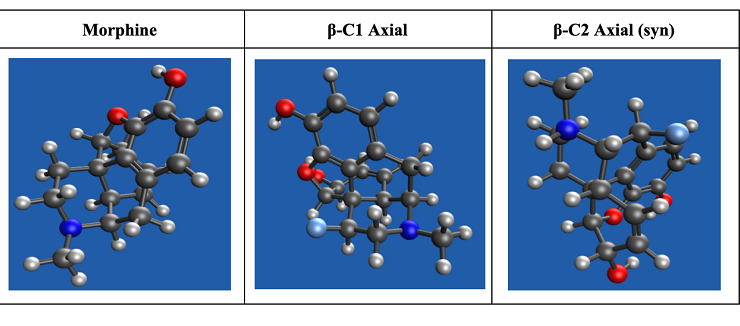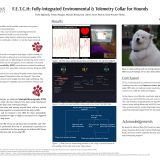
Tackling the Opioid Crisis How one GCI team is developing a non-addictive opioid
April 26, 2021
First and second-year students in the Grand Challenges Initiatives are pushed to develop research-based solutions for real-world problems. The ongoing opioid crisis is a major challenge for medical workers, pharmaceutical companies, and policymakers alike. One GCI team is bringing their diverse experiences together to contribute to solutions for this issue.
Angelina Sorensen (Biochemistry and Molecular Biology, 2022), Maken Augenstein (Biology, 2022), Nayiri Alexander (Biology, 2022), Chella Barcia (Biology, 2022), and Anna Greene (Computer Science, 2022) decided to go big with their project. Every member of the team has a personal story tying them to the opioid crisis, and they decided their passion for science and medicine would make it the perfect challenge. They are working on developing a non-addictive opioid that will help patients manage pain without the side effects we are seeing from current opioids.
The team explained that opioids work by binding in two different parts of the nervous system, which creates the euphoric effects – and makes them extremely addictive. The team is specifically studying morphine, which binds to both healthy and injured tissues to provide pain relief. Due to inflammation of injured tissues, those tissues are actually slightly more acidic. The team is working to develop a drug that will only bind at more acidic sites, which will discourage binding in the brain (one of the reasons why opioids are so addictive). The drug would therefore still be effective at providing pain relief, without creating the other harmful side effects.
The group has found that this project draws on all their classes and knowledge to push them holistically as scientists. Sorensen says, “One of our favorite parts of the project has been watching it evolve as our education continues. When we started the project, we had also just started our first semester of organic chemistry, which is what led us to incorporate a more chemical-based approach at all. As we progressed through biochemistry, analytical chemistry, and now into medicinal chemistry, physiology, and biochemistry 2, we continue to learn concepts that refine our understanding of the project and allow us to connect concepts across all of our core subjects. It’s really exciting to see years of learning come together like this.” The group also has to do a lot of extra research, combing through scientific journals and reading about molecular pharmacology to push their experiment forward.
Drug development is a process that usually takes around 15 years. This timeline isn’t a problem for the group. “Even knowing this process is far from over for us, we see ourselves carrying out this project to completion. Seeing our bioengineered opioid in hospitals helping patients in pain while also allowing them to maintain their mental clarity and avoid susceptibility to addiction is the goal we have our sights set on,” shared Sorensen.
The Team
- Angelina Sorensen (Biochemistry and Molecular Biology, 2022)
- Chella Barcia (Biology, 2022)
- Makena Augenstein (Biology, 2022)
- Nayiri Alexander (Biology, 2022)
Angelina Sorensen currently work in a lab in Los Angeles that aids in workplace COVID-testing using PCR. She plans to move from lab administration to actual lab technician work after graduation while she prepares to apply to medical school in the coming years, continuing to conduct research in biochemistry and molecular biology as a physician.
Makena Augenstein is a pre-med student and plans on going to medical school after graduating from Chapman. This project has been very influential on her love for research and she plans on continuing to conduct research throughout her career in medicine.
Nayiri Alexander will be applying to medical schools and aspires to become a physician in the future. She would also like to incorporate research work alongside being a doctor.
Chella Garcia is currently a pre-med student. She aspires to become a plastic surgeon/dermatologist and hopefully, one day have her own practice. She plans on applying to medical schools a year or so after graduating from Chapman. She hopes to continue working on research throughout her career.
Anna Greene currently has an internship as a Software Engineer Intern for this summer and hopes to continue to pursue research in Neuroscience.





